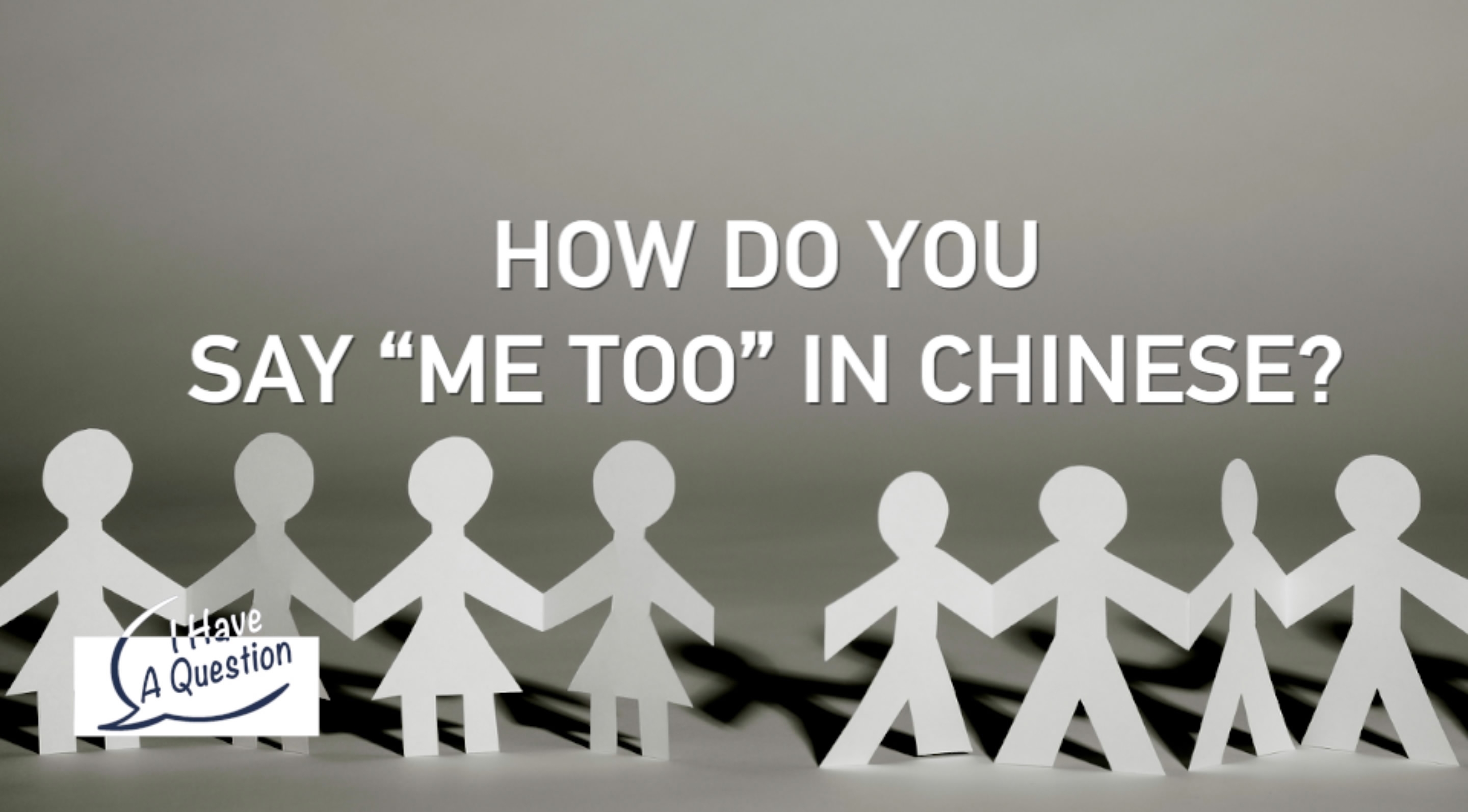
Politics
09:11, 16-Mar-2018
I HAVE A QUESTION: When can China speak out?
By Han Bin, Zhuang Yuying, and Wei Lynn Tang

WHO IS THE “ME” IN “ME TOO”?
It can be me. It can be you. It can be anyone, everyone… male and female alike.
Encouraged by the online movement #metoo, Beihang University alumna Luo Xixi revealed in October last year that her PhD supervisor, Professor Chen Xiaowu, sexually assaulted her – a good 12 years ago.
She wasn’t the only victim, it seemed.
“It so happened I came across another harassment post online... I was shocked and realized my incident sparked what is the start of many other victims’ experiences. If only I stood up earlier, others may not have got away with what I had,” Luo said.
Wei Tingting, the director of Guangzhou Gender and Sexuality Education Center, wasn’t surprised with such sexual harassment cases, however.
In her 2016 research titled “A Report on Sexual Harassment on Chinese College Campuses,” 75 percent of the female respondents and 35.3 percent of the male respondents said they have experienced sexual harassment at various levels. The research was compiled from 6,592 valid samples.
“Both men and women can be victims of sexual harassment and sexual violence,” she said.
ONLY “TIP OF THE ICEBERG”
Sexual harassment is not a new phenomenon globally. But in conservative Chinese society, such cases have not been given the attention they deserve.
“What we have seen on sexual harassment and sexual violence is only the tip of the iceberg,” said Wei Tingting.
“Only four percent of the sexual harassment victims actually end up reporting what happened to the police or their college officers.”
Luoxixi’s case reflects the majority who did not speak up soon enough. But as they say, better late than never.
Luo created a WeChat group to communicate with other Chen victims and she has also begun to collect evidence from them. A few have since stopped responding after they were initially active in cooperating.
“I understand the silence though. How can you speak up so easily when you have been hurt that greatly?” Luo wrote on her Weibo account.
Wei Tingting explained that this has got to do mostly with the issue of gender equality, where women do not get enough empowerment to help them speak out.
“I think it’s also the stigma one attaches to female sexuality, as well as sexual harassment, where victims will feel ashamed to talk about what happened.”

Wei Tingting says sexual harassment in China is a serious issue, but the country does not have enough forces to deal with and prevent it just yet. /CGTN photo by Wang Jigang
Wei Tingting says sexual harassment in China is a serious issue, but the country does not have enough forces to deal with and prevent it just yet. /CGTN photo by Wang Jigang
IT ALL STARTS WITH EMPOWERMENT
In China, Chen Xiaowu’s disqualification by school authorities can be considered as a “small win” in the country’s fight against sexual harassment. But the journey ahead is a long one.
“When a Chinese woman suffers from sexual harassment, she is uncertain as to how serious the problem is,” a CPPCC member says.
It also doesn’t help when there is said to be no legal definition of sexual harassment in China.
While the Ministry of Education had in 2014 issued a regulation preventing teachers from behaving inappropriately, it did not specify the ways to tackle these cases when they surface.
Wei Tingting provides the solutions below to fight against sexual harassment.
1. Gender equality education for all
“We have to educate men in terms of how to respect women, and to respect everyone around them…Men in their very young time are taught to be more aggressive or brave. Whilst I personally remember as a girl, I was taught to be soft, gentle, and if someone were to do something bad, I’d better just accept it. So this difference in education structure has made our ideologies different.”
2. Empower females
“We have to teach women how to be brave.”
3. Sex education from a young age
“Only when sex is not a stigma and sexually insulted victims stop feeling ashamed, then can they stand up, speak out their pain and get help.”
4. Build up a complete mechanism
“The victims do not trust our system to help them. Or maybe the process is too long or inconvenient, and they are afraid they will be hurt the second time, so they don’t report it.”
“A complete system means we have to train the police, the universities staff, and more anti-sexual harassment signs in public transport… We have to educate the public.”
Lastly, Wei Tingting also called for psychological treatment for victims.
While she believes the #metoo campaign has given many Chinese women the courage to speak out a little more, it isn’t enough.
It is her hope that one day, there will be equality for everyone.

SITEMAP
Copyright © 2018 CGTN. Beijing ICP prepared NO.16065310-3
Copyright © 2018 CGTN. Beijing ICP prepared NO.16065310-3